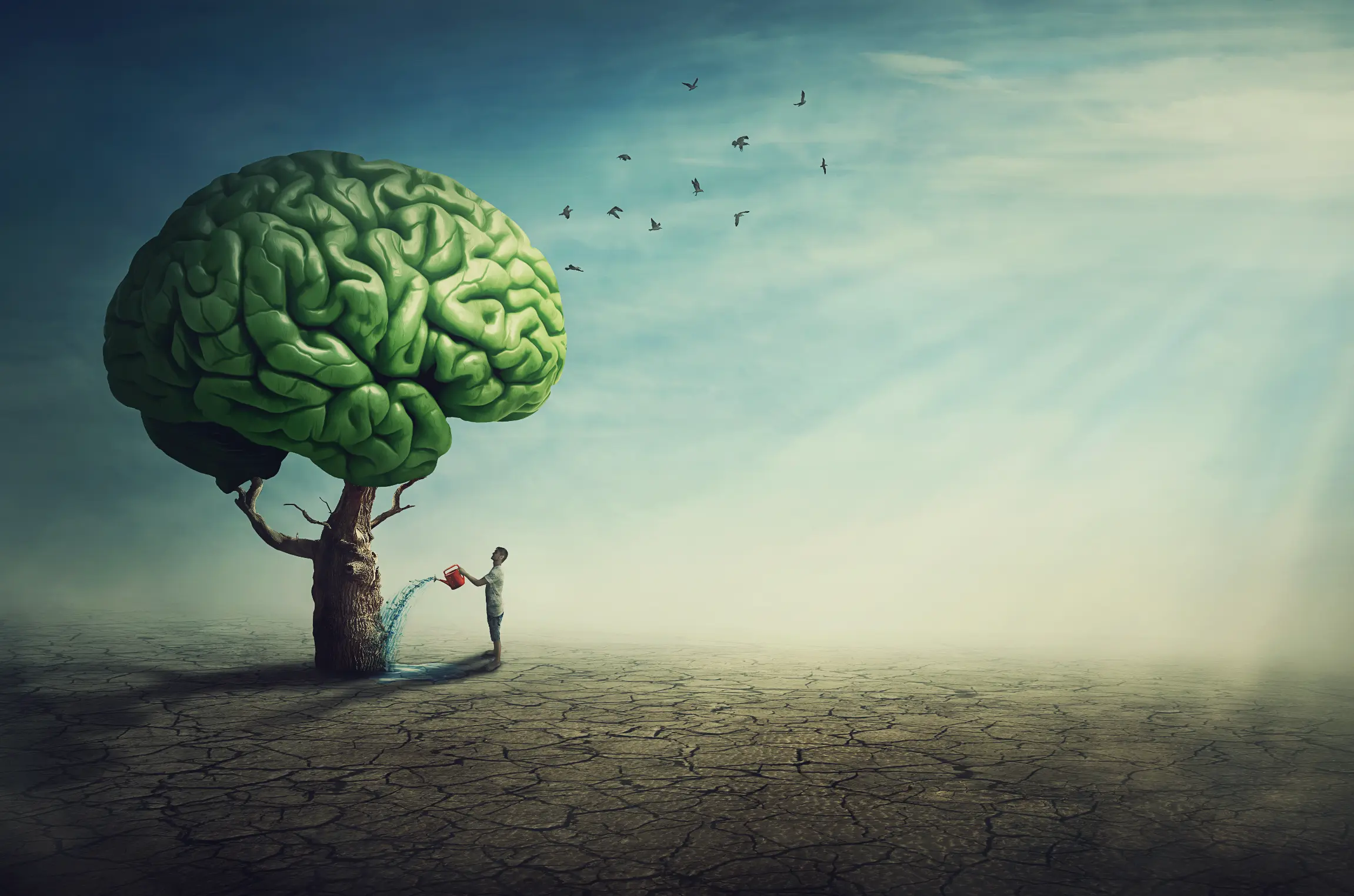Common signs of nutritional deficiency despite varied diet
Learn to recognize your body's early signals of nutrient deficiency and how to prevent more serious health problems.

Introduction
Many people believe that a varied diet ensures the right nutritional balance, but this is not always the case. Nutrient deficiency can affect anyone, even those who eat carefully and mixed. The body's uptake is affected by everything from stress to age and certain health problems.
People over 65, pregnant women, vegans and those with chronic illnesses are at greater risk. Even children and adolescents can suffer from a deficiency if the intake or intake is not sufficient for the needs of the body. Recognizing early signs is necessary to prevent more serious problems later.
This article will help you understand why nutritional deficiencies can be difficult to detect and why the right knowledge makes a difference to health.
Physical Signals of Nutrient Deficiency
The body often shows clear signs when it does not receive enough important substances. It's not just about internal signals — you can see and feel warning signals already on the outside. Skin, hair, nails and mouth often become mirror images of your nutritional status. By paying attention to these changes, you can quickly catch early warning flags.
Fatigue and low energy levels
Fatigue that does not let go, despite sleep and rest, is a common consequence of nutritional deficiencies. Several nutrients work together to allow the body to produce energy. Lacking any of them, it directly affects your daily routine.
Common deficiency symptoms:
- Iron deficiency — Causes anemia, fatigue and palpitations. The body does not receive enough oxygen.
- B12 deficiency — Affects nerves and energy levels. Causes prolonged fatigue and poorer memory.
- Magnesium or vitamin D deficiency — Can make muscles weak and cause an unusually heavy feeling in the body.
When the body struggles with maintaining basic functions, you quickly go into save mode. You notice it because you can take it less, become less breathless, or lose motivation.

Skin problems, hair loss and brittle nails
Skin, hair and nails change quickly if the body receives too little nutrition. These changes are often noticed early:
- Skin: Dry, pale or scaly skin often indicates a lack of vitamin A, essential fatty acids or zinc. Vitamin B deficiency can cause rashes and small sores in the corners of the mouth.
- Hair: Hair becomes thinner, duller or stops growing. Iron deficiency and protein deficiency are quickly noticeable in the quality of hair. Zinc deficiency can cause hair loss.
- Nails: Brittle, striped or spoon-shaped nails often indicate iron, zinc or biotin deficiency. White spots or furrows on nails may be due to deficiencies in B vitamins or minerals.
Skin becoming shiny, nails chipping, or hair thinning is the body's way of signaling that it prioritizes vital functions when nutrition is lacking.
Cold sores and swelling of the tongue or mouth
The mouth and tongue are sensitive to nutritional imbalance, because the cells there are renewed quickly.
- Cold sores (especially in the case of corners of the mouth) often comes from a deficiency of B2 (riboflavin), B6 (pyridoxine), B12 or iron. Wounds that do not want to heal are a clear signal.
- Swelling or stinging sensation in the tongue may indicate iron, zinc or folate deficiency. The tongue may become red, smooth or sore.
- Small sores or stinging sensation in the oral mucosa occurs with a lack of zinc, B12 or folic acid.
If you notice unusual discomfort in your mouth, think about your diet and habits have changed. The body reacts quickly when it lacks substances and the mouth is often the first to show signs of deficiency.
Mental and emotional signs
When the body lacks essential nutrients, not only the physique is affected, but also the functioning of the brain and mood. Many people react only when they notice changes in thinking skills or emotions, despite the fact that the diet seems balanced.
It is often forgotten that the brain and nervous system are extra sensitive to a lack of certain nutrients. Signs such as difficulty concentrating, memory problems and mood swings are often seen here — signals not to be ignored.
Impaired concentration and memory
Weak concentration, lowered memory or a feeling of having “brain fog” often indicate nutritional deficiency. The brain requires a constant flow of the right substances to form signal substances and keep nerves healthy.
Some common deficiencies that affect brain function are:
- Vitamin B12: Deficiency leads to impaired memory, difficulty focusing, and sometimes crawling or tingling of the skin.
- Iron: When the body lacks iron, the oxygen supply to the brain decreases, making thoughts more sluggish and memory poorer.
- Omega-3 fatty acids: Helps build up brain cells. Deficiency can cause problems with both memory and learning.
- Folic acid (B9): Deficiency impairs concentration and can make it harder to follow a thought in the end.
You don't have to experience total memory loss or severe concentration problems. Many people notice small changes in everyday life, such as it being harder to stay awake at meetings, forgetting names or losing the thread in conversations.

Mood swings and irritability
Large fluctuations in mood or increased irritability can have nutritional deficiencies as a basis. Certain vitamins and minerals are directly linked to brain signaling substances, making them essential for a stable emotional life.
Deficiencies of these nutrients are particularly common in mood disorders:
- B vitamins: B6, B12 and folic acid are necessary for the production of serotonin and dopamine, the substances that control joy, calm and stress. In case of shortage, you are closer at hand for anxiety, worry and irritation.
- Magnesium: This mineral calms the nervous system and reduces stress. Without enough magnesium, you become more tense, restless and find it more difficult to relax.
- Essential fatty acids (from oily fish, for example): These build up the cell membranes of the brain and affect the balance of the nervous system. Deficiency can cause both depressed mood and increased sensitivity to stress.
Stress and worry in everyday life usually further aggravate deficiency symptoms. If you notice sudden changes in mood or are less tolerant than usual, it may be worth taking a closer look at whether you're getting enough of these essential nutrients.
Common nutritional deficiencies in varied diets
Even those who eat a variety can be deficient in essential nutrients. It has to do with both your body's absorption capacity and environmental factors that you have no control over. Here are some of the most common nutritional deficiencies that are often detected, despite an otherwise healthy and versatile diet.
Iron deficiency
Iron deficiency is very common, regardless of whether you eat meat, fish and vegetables. The reason often lies in how the body absorbs iron and how quickly you lose it. Many people get iron from their diet but uptake can be hindered by coffee, tea, milk and fiber-rich products, all of which slow down iron uptake in the gut.
Examples of risk factors:
- The needs of men and women differ. Women, especially during heavy periods, lose more iron regularly.
- The body absorbs iron more easily from meat (heme iron) compared to plant foods (non-heme iron).
- People who exercise a lot, pregnant women, young people in growth and blood donors need extra iron.
Common symptoms of iron deficiency include weakness, irritation and paleness, but it can also cause headaches, difficulty concentrating, and often shortness of breath.
Vitamin D deficiency
Vitamin D deficiency is very widespread in Sweden and the rest of the Nordic countries, no matter how conscious you are about your diet. That's because the sun -- not food -- is our main source of vitamin D. During the winter months, sunlight is not enough for the body to produce the vitamin D it needs.
Specific factors affecting:
- Dark months, cloudy days and sun protection reduce the body's vitamin D synthesis.
- Few foods, primarily oily fish and fortified dairy products, contain significant amounts of vitamin D.
- Older people, young children, people with dark skin and those who wear clothing that covers the skin are at higher risk.
Deficiencies can produce fatigue, muscle weakness, osteoporosis and an increased risk of infections. Prolonged deficiency lowers the immune system and affects the strength of the skeleton.
Vitamin B12 and folate
Vitamin B12 is found almost only in animal foods. Folate is found in many vegetables, but both intake and needs vary widely. Some groups are more at risk of deficiency, even if they try to eat all-purpose.
Risk groups and causes:
- Elderly: The body loses the ability to absorb B12 via the stomach with age.
- Vegan: Lacks completely natural sources of B12 in the diet and therefore needs supplementation.
- People with stomach or intestinal disorders: Low production of stomach acid, celiac disease, Crohn's disease and similar conditions make absorption of both B12 and folate worse.
Common symptoms of B12 and folate deficiency include fatigue, difficulty concentrating, tingling in the fingers and toes, as well as anemia that manifests itself in paleness or palpitations. With prolonged deficiency, nerves and memory are also negatively affected.
In summary, nutritional deficiencies are not uncommon despite a varied dietary intake. Some nutrients can be difficult to ingest or absorb — and sometimes diet doesn't provide the full answer to your symptoms.

Causes of nutritional deficiency despite varied diet
It is easy to believe that a varied diet provides enough nutrition, but the reality often looks different. Many factors influence how the body absorbs and uses nutrients, even when you make conscious choices at the dinner table. Here are some of the most common causes of nutritional deficiencies, even if you eat widely and think about health.
Impaired absorption in the intestine
The body's ability to absorb nutrients in the intestine is called absorption. If the intestine does not work properly, you can get a lack of both vitamins and minerals, even if you eat the right amount.
Common causes of impaired uptake include:
- Celiac disease (gluten intolerance): Gluten damages the intestinal mucosa and reduces the absorption of several nutrients, especially iron, calcium, vitamin D, and folic acid.
- Crohn's disease and ulcerative colitis: Chronic intestinal diseases cause inflammation of the intestine and make the body unable to absorb nutrition effectively.
- Gastric surgery and gastric bypass: Operations on the stomach or intestines can lead to parts of the digestive system being knocked out or shortened, which directly affects absorption.
- Lactose intolerance and IBS: These conditions can affect digestion. Often certain foods are avoided and nutrients thus disappear from the diet.
In case of reduced absorption, the body has to work harder to absorb what it needs. It allows imperfections to creep in even when meals look balanced on the surface.
Drugs that affect nutrient absorption
Several drugs can interfere with the body's absorption or turnover of nutrition. Simple allergy tablets rarely have any effect, but many common drugs make a big difference in the long run.
Examples of drugs that can cause nutritional deficiencies:
- Acid-inhibiting drugs (proton pump inhibitors): Common for heartburn and gastritis. Long-term use can impair the absorption of B12, magnesium, calcium and iron.
- Diuretics (diuretic): Often prints to the elderly or people with heart problems. May lead to loss of potassium, magnesium and sodium.
- Laxatives: Common in constipation. Frequent and prolonged use can lead to losses of electrolytes and some vitamins.
- Antibiotics: May disrupt the intestinal flora and thus the body's ability to absorb certain nutrients, especially with prolonged treatment.
It is common to combine different drugs, something that increases the risk of nutritional deficiency without you noticing it right away. Feel free to talk to your doctor if you are concerned about your nutritional intake while taking medications regularly.
Individual differences and increased needs
Everyone has unique conditions and needs — nutritional needs change throughout life and in different situations.
The main factors affecting the need are:
- Pregnancy and lactation: The body requires more of several important substances, especially folic acid, iron and calcium. Deficiency can quickly occur if the intake or uptake does not match the need.
- Age: Elderly people often have a lower intake of nutrients, while appetite decreases. The body breaks down and absorbs vitamins and minerals more slowly over the years.
- Stress: Prolonged stress increases the need for certain nutrients. Stress can also lead to poor nutritional intake and impaired eating habits.
- Physical activity: Exercise and hard physical loads above all increase the need for iron, magnesium, B vitamins and protein for recovery and energy.
It is often not enough to eat as usual during periods when the need shifts, especially if you combine several of these factors, such as if you are pregnant and exercising, or elderly with chronic illness.
By being aware of these factors, you can more easily understand why signs of nutritional deficiency may appear — even if you have a carefully selected and balanced food intake.
Summary
Listening to your body's early signals can protect you from more serious health problems down the road. Fatigue, skin changes or a shaky mood may seem mundane, but are often important warning flags. If you notice several signs that persist, always contact your health care provider — early help provides better treatment and faster recovery.











